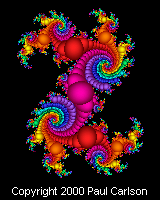
RACE & ETHNIC RELATIONS
Spring 2007

Course web site:
http://www.csub.edu/~gsantos/
Course testing at CSUB's WebCT web site: http://webct.csub.edu/
NOTICE: The faculty union is in the midst of contract negotiations and
there is a possibility of a work interruption.
Updates on this situation will be provided throughout the course.
|
Instructor:
Dr.
Gonzalo
Santos

santos_class@csub.edu
Office:
DDH-AA205
Phone: 654-2191
Office
Hours:
11:00 am - 12:00 pm MWF
|
Classrooms:
DDH-107K (Sec. 1); 103K (Sec. 2)
Class
time: 9:30-10:55 am MWF (Sec. 1)
12:30-1:55 pm MWF (Sec. 2)
Teaching Assistant: Gisela Contreras

gcontreras2@runner.csub.edu
|
TEXTBOOKS & WEB READINGS

- Joseph F. Healey, 2006. Race, Ethnicity,
Gender,
and Class . The Sociology of Group Conflict and Change. 4rd ed..
Thousand
Oaks: Pine Forge. ISBN: 1-4129-1521-X.
- John Kromkowski, 2006. Annual Editions.
Race and Ethnic Relations 05/06. 15th ed.. Guilford, CT:
Dushkin/McGraw-Hill. ISBN: 0-07-305378-3.
COURSE CONTENT

This course is designed to provide students
with
a broad introduction to the field of race & ethnic relations in the
United States. The historical and contemporary experiences of various
ethnic and panethnic groups in the United States -- the so-designated
European Americans,
Native Americans, African Americans, Latinos/Hispanics, and Asian
Americans
-- are systematically analyzed based on the Healey textbook. Various
sociological
concepts are defined to explain the origins and history of the
interactions
between these groups from colonial times to the present; in short, we
attempt
to understand the history and dynamics of modern peoplehood in the
United
States, informed by sociological theory.
There has never been a
social
consensus on, or a universal theory of, modern peoplehood, including
theories
of nation, race, and ethnicity; there hasn't even been agreement over
the
historical record of racial and ethnic relations in any specific
country;
such is the case with the United States. Much less can we find
agreement on
the theory and history of peoplehood encompassing human history, even
modern world history. But
there
has been prolific writing on these subjects, especially on a country by
country approach. We will focus on the U.S.
experience, using the main textbook, the Healey book - an excellent
example of an attempt to analyze the historical sociology of race and
ethnicity in a single modern
country.
The emphasis of the lectures, as a complement
to the Healey book, will be placed on how race,
ethnicity,
& nationhood have been socially (re)constructed in the U.S., and
how
these categories relate to and are inextricably imbedded in various
socio-structural processes
such as modes of labor, the flows of free and forced migrations, the
legacies of conquest
and
imperialism,
enduring systems of class stratification and the vicissitudes (avowed
or hidden) of class struggle, the immense role of the state,
the evolving patterns
of culture, and finally, gender relations. We elucidate the world
historical
contexts in which the social categories of race, ethnicity, and nation
originated
and evolved; and how they were affected by -- and in turn
influenced
-- the political, economic, and cultural processes in modern world
history.
Finally, an exploration of various current
topics and
trends
of peoplehood in the United States and worldwide will be pursued
independently by each student via the
Annual Editions anthology of articles.
COURSE STRUCTURE

Lectures/Videos/Final
Exam:
Dr. Santos will lecture every class. Attendance to these lectures -
as well as all Friday sessions - is
mandatory; absences, tardiness, and early leaving without prior
approval by Dr. Santos will be penalized. From time to time, the class
will watch and discuss a video
documentary. The final exam
(June 7, 8:00 - 10:30 am for Sec. 1; June 6, 11:00 - 1:30 pm for Sec.
2) will be
exclusively
based on the lectures & videos, so take good notes.
Activities
Based on the Healey Textbook:
For every chapter covered in the Healey textbook, students will be
asked
to do two types of
assignments: (a) file an email
essay-type report on the
"Current
Debates" section found at the end of the chapter -- this report is
generated
from within the course's web site; and (b) take the chapter test, using the
WebCT
system at Cal State Bakersfield.
- Chapter Debate Reports: The Healey book contains 14 chapters, of which we will cover the first 12.
At the end of each chapter of the
Healey textbook,
there is a section entitled "Current Debates",
accompanied by a few numbered questions under the heading "Debate Questions to Consider". Students
generate
and
file their reports clicking the "Debate
Reports"
frame button to the left of this syllabus on Dr. Santos web site.
Spaces are provided
in
the report form to answer the first four
numbered questions
(ignore any fifth or higher numbered question; if there are only three
questions,
that's fine too; if there are two or more current debate sections, just
do the
first section only). The length of each
of these four short-essay answers should be a about half a page, or a couple of full paragraphs.
The content
will
be graded by the T.A. for critical
thinking, clarity,
and accuracy.
Before
you send the report, make sure you entered all information correctly,
especially your "official"
email address [IMPORTANT: please stick to one
email address throughout the course, even if you access the web site
forms from various computers].
When you send it, two
copies of your chapter report will automatically
be
sent out: one to Dr. Santos' email address and the other to your
"official"
email address. Save your reports in case anything goes wrong! The
deadline for
each chapter debate report is the Sunday midnight at the end of the
week
that chapter was assigned (except the last week, when the deadline is
that Friday midnight).
- Chapter Tests:
For each chapter assigned, students must take a
multiple-choice test of twenty
random
questions (on the web) on the week it is assigned (same Sunday midnight deadline applies, except the last week, when the deadline is that Friday
midnight). Note that there's usually a single chapter assigned per week, but
on Week 6 two chapters are
assigned. To access and take
a chapter test, click
the
frame button "Tests & Quizzes" to your left (found also at Dr. Santos' home web
page);
alternatively, you may simply click and bookmark the URL address for
CSUB's
WebCT: http://webct.csub.edu/.
See testing details below.
Extra: If you wish
to improve a possible low chapter test score, you may take a second
chapter test, so long as you do so before the assigned chapter
Sunday deadline.
The chapter score that will be recorded will be
the average of the
two
test scores.
Activities
Based on the Annual Editions
Anthology of Articles:
The Annual Editions (AE) anthology of articles contains 51 articles
organized
in 11 "Units."
Each week a Unit will be assigned and each
student
needs to (a) freely choose two
articles from that Unit to read and
(b) take
a quiz on each of those two articles.
The
deadline for
each week's AE 2-quiz assignment is the Sunday midnight at the end of
the
week it was assigned (except the
last week, when the deadline is that Friday midnight). The quizzes are very short and
multiple-choice. You have 15 minutes to complete each, in any order you
wish. Note that you may not
take a second quiz on any given AE
article. (NOTE: If you wish
to improve a possible low quiz score, you may read & quiz
on
as many extra articles within an assigned unit as you wish, so long as
you
take these extra quizzes before the assigned Unit's Sunday deadline.
The previous
low scores will not be erased, but you may be able to improve your
average
score a little.)
To access and take an AE article quiz, do the
same
thing as before with the Healey chapter tests: click the frame button "Tests & Quizzes"
to
your left (found also at Dr. Santos' home web page); alternatively, you
may
simply click and bookmark the URL address for CSUB's WebCT: http://webct.csub.edu/.
See testing details below.
Instructions
on Taking Quizzes and
Tests at CSUB's WebCT:
To gain
access: go to the CSUB WebCT site: click and bookmark the
following URL address:
http://webct.csub.edu/
If you are doing it from
an off campus computer, make sure your browser is properly
configured (click around WebCT support links and read how you can ensure
your browser is properly configured).
You will need to know
your WebCT ID and password. All CSUB enrolled students have a "Runner" email
account. Your WebCT ID is the
same as your Runner Mail Logon ID --
that is, whatever prefix goes before the "@runner.csub.edu"
domain. For example, the WebCT ID for John Smith
(jsmith4@runner.csub.edu) would be jsmith4. Your initial WebCT password is the last
five digits of your CSUB ID Number.
Once logged on to WebCT, you will be asked to change it immediately (if
you have used WebCT before you'll need to enter your old password).
Choose an easy to remember, easy to type new password. We also suggest
that you set up your login hint
immediately - and write all these codes somewhere where you will not
loose them, nor expose them to theft by others.
If
you need
help: If you don't know your CSUB RunnerMail Logon ID or if
you've changed your password and have forgotten it, contact the Student Technology Help Desk in the library at (661) 654-2315 or the Student
Help Desk at (661) 654-6677, or simply go
to the Library, Lower
Level Room 1, during office hours.
Be
prepared!
The maximum duration for each chapter
test is 60 minutes. After
each weekly deadline, access to any given chapter test will be closed
and no late testing will be possible. So make sure you have prepared
well, chosen a day, time & place well, and have ample time and
tranquility (with no
distractions) to begin testing; take time to read carefully
each question before you answer it - do not rush! (a common
mistake). You may take the test with the open book, but exclusively on
your own, please. Never plan to take a test in two or more
sittings; plan always to take
each test in a single session
(the computer usually freezes incomplete tests).
Save
your
answers every time. If
you change your mind on a specific answer, don't forget to save
it again! And don't forget to send your quiz/test to grade
when you are done (lots of students forget this last step and their
scores are not computed!).
Security
precaution: If you are using a public computer always quit both
the WebCT site and the browser (Netscape or Explorer) after you
are done with testing -- otherwise, someone may access your own
WebCT account and "try out" some tests! This is because your access
codes stay active until you quit the browser. And remember, never
share your testing access codes with anyone!
Cheating Warning: Students are hereby formally forewarned that anybody
caught cheating on the tests will automatically fail the course. WebCT
has a monitoring capability that automatically "flags" for instructors
a variety of potential cheating cases and situations -- including
comparing student answers, times of testing, etc. A student was already
suspended from the University for having stolen somebody else's tests.
Extra
Credit:
(b) Lecture: On
Friday, April 20, from 3:30 - 5:00 pm Club Soc will be presenting Dr.
Laura Edles from CSU Northridge, who will deliver a lecture: "Who are My People? A Preliminary
Discussion of the Complexities of Race, Class, Gender and Culture."
Students that attend and submit a report of her talk (2 pages long,
double spaced), will receive up to 3 points extra.
(b) Attendance policy:
Absences/tardiness will be penalized (-1 point per incident),
while perfect attendance will be rewarded (+5 points).
Grading:
The Healey chapter tests
taken
together are worth 40 percent
of the final grade. The Healey chapter
debate
reports taken
together
are worth taken together are worth 15
percent. The
Annual
Editions article quizzes are
worth 20 percent. The final exam is
worth 25 percent. The final
letter grade will be assigned, on a total percentage scale of
0
to 100, as follows:
| 94-100 = A |
87-89 = B+ |
77-79 = C+ |
65-69 = D |
| 90-93 = A- |
84-86 = B |
74-76 = C |
< 65 = F |
|
80-83 = B- |
70-73 = C- |
|
Office
Hours/Email to Dr. Santos/Ms. Contreras:
Dr. Santos will generally be available at his office, DDH-AA205,
from 11:00 am to 12:00 pm, MWF.
Students are encouraged
to come see him or to call (664-2191) during these times.
Alternatively,
students
may communicate with Dr. Santos or Ms. Gisela Contreras, your T.A., via
email
(her
email address is above). Please be advised, though, given the huge
volume
of incoming reports, that email communication has to be very brief and
to
the point. Clearly identify your business in the subject heading, always write from your "official
email address", and make sure to sign
off with your
full
name. Generally, Ms. Contreras will handle feedback on
all your email reports and Dr. Santos will give you feedback on your
tests,
quizzes,
and the final exam, as well as anything else having to do with the
lectures or the course.
Web
page frame buttons to the left of this syllabus:
- There are a number of useful frame buttons to the left of the
syllabus web page:
- "Presentations"
has PowerPoint presentations for each of the Healey chapters. You will
be prompted for access codes. Use the generic access codes used for
accessing Dr. Santos web readings.
- "Other
Notes" contain the learning objectives and detailed outlines for
each of the Healey chapters, as well as suggestions for classroom
activities. You will be prompted for access codes. Use the generic
access codes used for accessing Dr. Santos web readings.
- "Debate
Reports" generates the form for Chapter Debate Reports where
students answer and submit the questions at the end of each Healey
chapter, in the "Current Debates" section.
- "Readings"
is the link to all the web reading lists for this course. You will be
prompted for access codes. Use the generic access codes used for
accessing Dr. Santos web readings. NOT USED THIS QUARTER.
- "Reading
Reports" generates the form where student write and submit their
web reading reports. NOT USED THIS QUARTER.
- "Web
Links" contains a number of link lists for the course, including
Dr. Santos' own list. NOT USED THIS QUARTER.
- "Link
Reports" generates the form where students write and submit
their
web link reports. NOT USED THIS QUARTER.
- "Research
Paper" is the link for Dr. Santos' tutorial on how to write a
good research paper. NOT USED THIS QUARTER.
- "Student
Projects" is the link for posted student projects for this
course. NOT USED THIS QUARTER.
- "E-mail"
generates a mail form for Dr. Santos.
- "Home
Page" sends you to Dr. Santos web portal.
- "Tests
& Quizzes" sends you to the campus WebCT testing site on the
web.
Schedule of Readings
|
Week
|
Healey Chapters
|
AE Units
|
1
March 26, 28, (30 -
no class)
|
1: Diversity in the United States
|
1 (Choose two articles)
|
2
April 2, 4, 6
|
2: Assimilation and Pluralism
|
2 (two articles)
|
3
April 9, 11, 13
|
3: Prejudice and Discrimination in the Individual
|
11 (two articles)
|
4
April 16, 18, 20
Dr. Laura Edles Lecture:
"Who Are My People", Apr. 20, 3:30 pm
|
4: Societal Trends in Prejudice and Discrimination
|
8 (two articles)
|
5
April 23, 25, 27
|
5: The Development of Dominant-Minority Group Relations
in Preindustrial America: The Origins of Slavery
|
10 (two articles)
|
6
April 30, May 2, 4
|
6: Industrialization and Dominant Minority Relations:
From Slavery to Segregation and the Coming of Postindustrial Society
12: White Ethnic Groups: Assimilation and Identity - The Twilight of
Ethnicity
|
9 (two articles)
|
7
May 7, 9, 11
|
7: African Americans: From Segregation to Modern
Institutional Discrimination and Modern Racism
|
6 (two articles)
|
8
May 14, 16, 18
|
8: Native Americans: From Conquest to Tribal Survival in
a Postindustrial Society
|
4 (two articles)
|
9
May 21, 23, 25
|
9: Hispanic Americans: Colonization, Immigration, and
Ethnic Enclaves
|
5 (two articles)
|
10
May (28 - no class), 30, June 1
|
10: Asian Americans: Are Chinese Americans and Japanese
Americans "Model Minorities"?
|
7 (two articles)
|
11
June
4
|
11: New Americans: Immigration and Assimilation
(Test
deadline: Fri. June 8 midnight)
|
3
(two articles)
(Quiz deadline: Fri. June 8
midnight)
|
Final Exams: Sec 1: June 7, 8:00 - 10:30 am; Sec. 2: June 6, 11:00 -
1:30 pm
|




